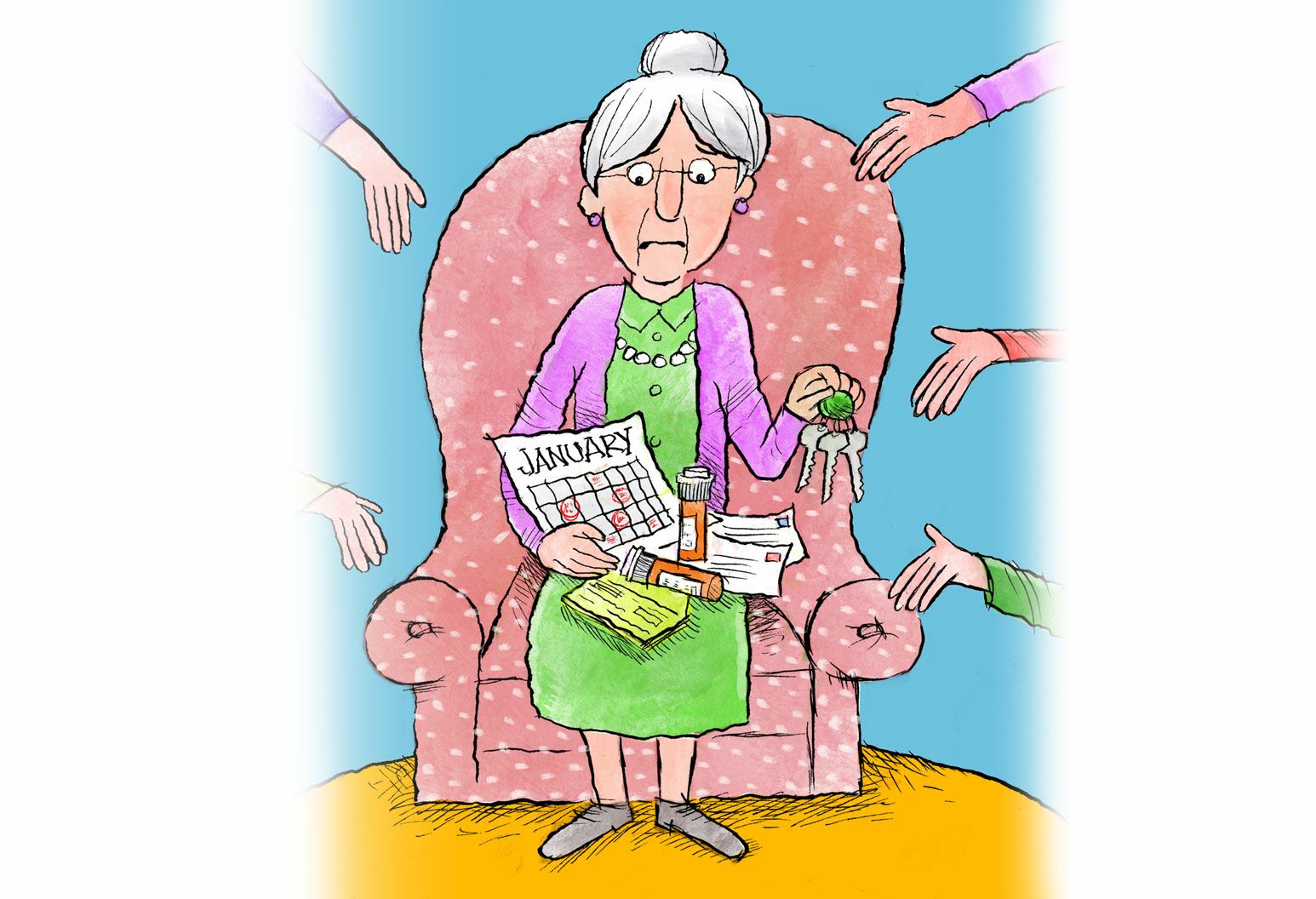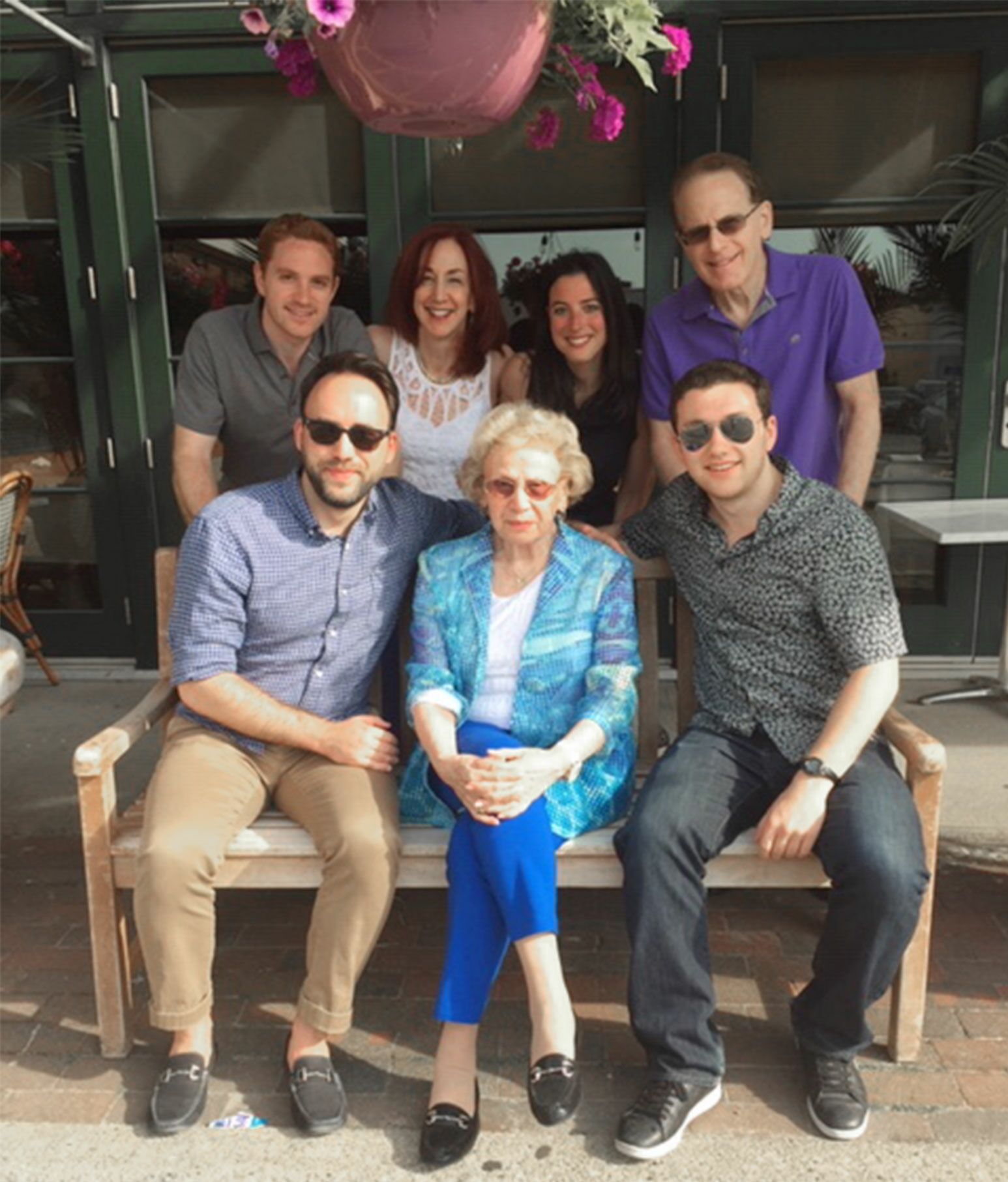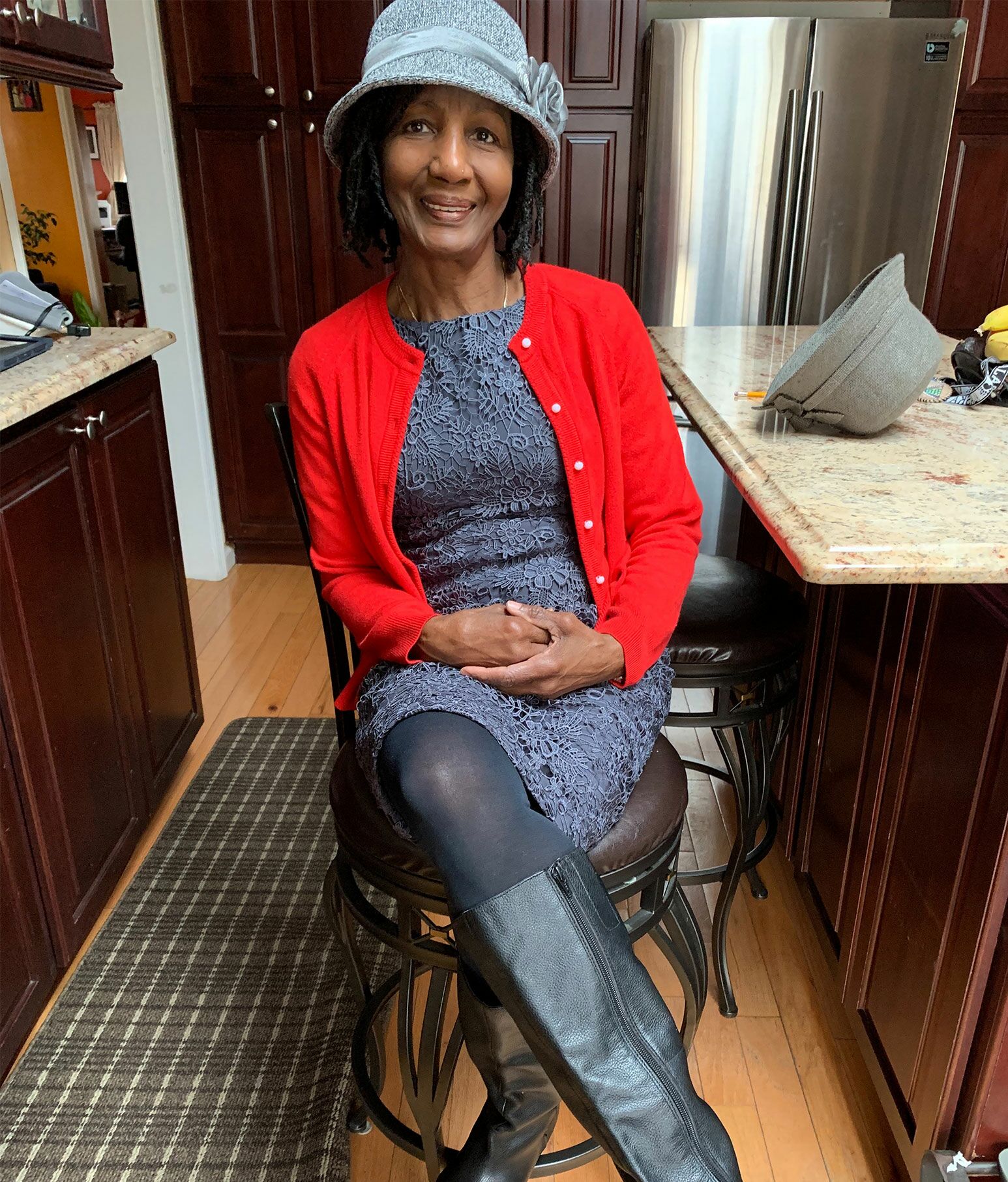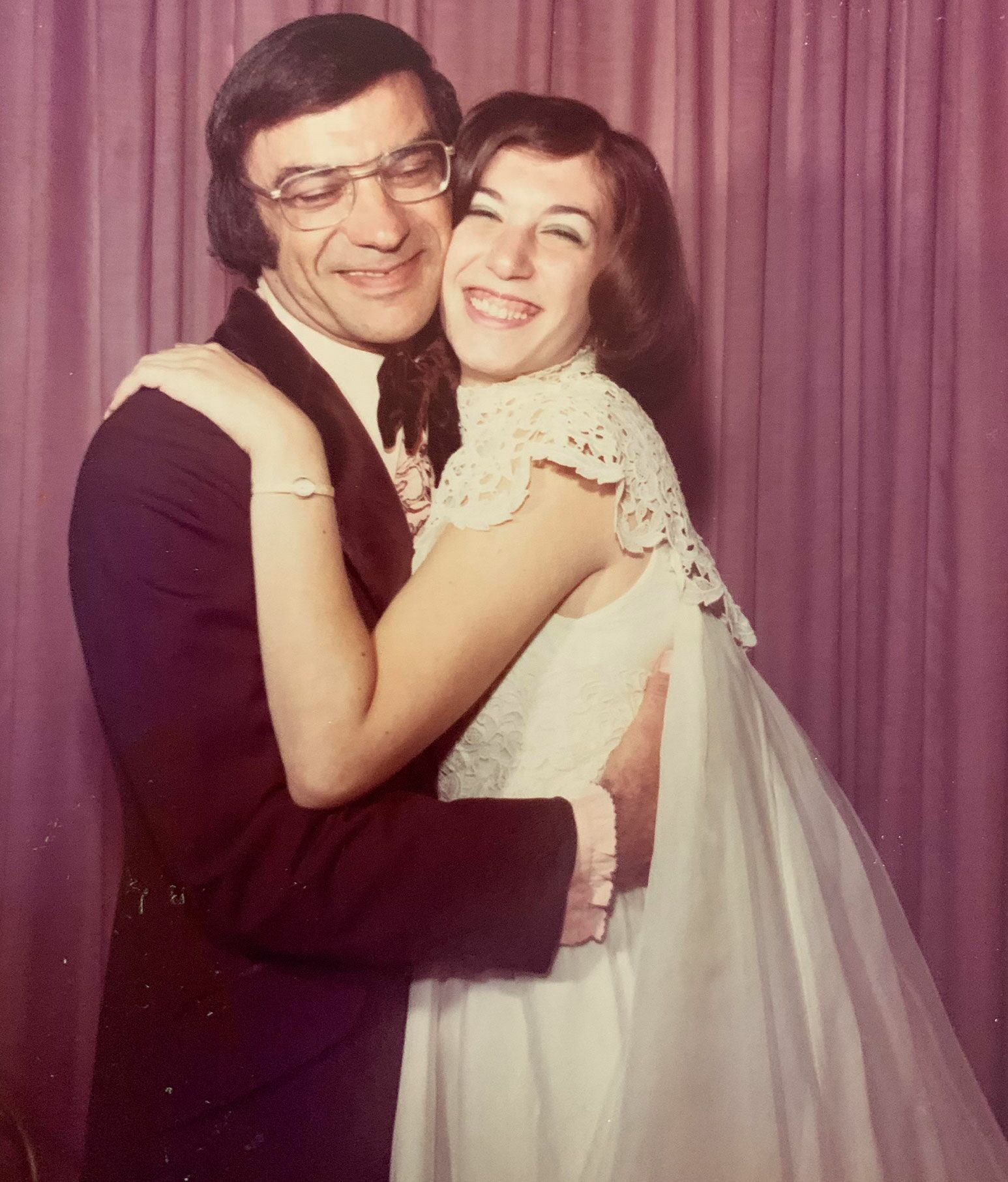caregiving
What To Expect When A Loved One Is Dying

Behavior changes from Alzheimer's are some of the toughest challenges for caregivers to navigate. Here's what helps them—and can help you.
11 min read
“You waited until Daddy couldn’t help me to take away my keys,” Cindy Krasner’s mother accused.
Krasner was crushed.
Her mother’s doctor advised Krasner to stop her mother from driving. Her father had a stroke a few months earlier. He was receiving 24-hour home care and his home health aides confided in Krasner that her mother would disappear for hours at a time, then come home, oblivious as to how long she had been gone. The aides were worried that her mother might go out and not return home, having gotten lost or worse. “So many people wait until their parent gets lost or the police find them and bring them home,” she was told. But Krasner couldn’t immediately take the keys. She didn’t want to treat her own mother like a child. It seemed disrespectful and unfair.
But the long excursions out weren’t the first times Krasner’s mother had behaved erratically. About a year before her father’s stroke, Krasner’s mother had severely damaged the car in the garage of her building—the first time she’d ever had an auto accident. She began to forget social and medical appointments. She complained about bouts of vertigo, but Krasner later learned that was an excuse to get out of her regular bridge games with friends because playing became a struggle.
The youngest of three siblings, Krasner was always the kid sister. Now, as the sibling living closest to her parents on Long Island, she found herself in the new and complicated role of caregiver. By 2014, she did take away the car keys. “It’s a horrible thing to take away that freedom,” Krasner said.
That was only the beginning. Over the following year, she took away many of the daily responsibilities that her mother had previously handled well on her own, such as managing her social calendar and doctor appointments. Krasner checked her mother’s medications to make sure they were being taken properly. She took over the bank accounts and paying the bills.
“You hesitate to take things over,” she says. “You look for permission from your parents to make the changes, but they can’t give it. I’m mom now.”

The role reversal was accompanied by a personality switch in her mother. A woman who had viewed the world through rose-colored glasses, offering kindness and affection to her family and friends, was suddenly hot tempered and depressed. “She’d become explosive over nothing,” Krasner recalls. “She’d yell. She’d stomp around and slam the doors because she was struggling with daily tasks. I never remember a door ever slamming in our house when I grew up.”
Krasner’s mother had Alzheimer’s disease, the sixth leading cause of death in the United States and the most common form of dementia. Today, more than 16 million people care for someone with Alzheimer’s, providing more than 18 billion hours of caregiving—the equivalent of a part-time job for every caregiver.
Living with a new reality when a parent develops Alzheimer’s disease or other form of dementia is a double-edged sword—one side is the caregiver who has to come to grips with the fact that their loved one is different in personality and behavior, and that the condition cannot be cured. On the other side is the person with the disease who can no longer communicate the way they always have and who is being betrayed by their own mind.
“This is something you don’t wish for,” Krasner says. “You don’t ask for it.”
According to the National Institute on Aging, healthy brains are composed of billions of neurons and other structures that transmit volumes of information instantaneously via electrical and chemical signals. As we age, our brains shrink some, but we don’t lose many neurons. In Alzheimer’s disease, abnormally high levels of naturally occurring proteins clump between and within neurons, creating plaque that disrupts normal functioning and ultimately kills the cells.
In the early, or mild, stage of Alzheimer’s, it can be hard to see any problems, explains Christine R. Kovach, PhD, director of research at Ovation Communities in Milwaukee, Wisconsin, and editor in chief of the journal Research in Gerontological Nursing. “All of us experience senior moments where we have trouble remembering things,” she says. In normal aging, a person may forget a piece of information, but will be able to recall it later. They should have no trouble managing routine tasks, such as paying monthly bills or following an often-made recipe, though they might make occasional mistakes. In Alzheimer’s disease and other dementias, memory loss disrupts daily life. A person may forget a recently learned piece of information or ask for the same bit of information repeatedly. They may no longer be able to do routine tasks they had no trouble with before.
In a brain affected by Alzheimer’s disease, damage progresses, destroying neurons in parts of the brain responsible for language, reasoning, and social behavior. The middle stage, or moderate Alzheimer’s disease, is where caregivers tend to see the greatest changes in behavior, Dr. Kovach explains. The disease may interfere with regular daily activities or lead to dramatic changes in behavior or personality. “It’s these behavior changes that are most difficult for caregivers to manage,” Dr. Kovach says.
In the final, most severe stage of Alzheimer’s, people lose the ability to respond to their environment. They might not be able to carry on a conversation. They may be able to say words or phrases, but communicating more complex concepts like pain becomes difficult. As memory and cognitive skills decline, there may be significant personality changes and increasing reliance on help to take care of daily activities. Alzheimer’s disease is fatal because the destruction of neurons leads to lost connections between brain regions, disrupting or destroying the processes needed for basic functions such as breathing and swallowing.
Current therapies can slow down Alzheimer’s progression—but they cannot stop or reverse it. There is no cure for Alzheimer’s disease.
Other forms of dementia cause brain changes in other ways, including reduced blood flow to the brain and buildup of proteins different from those in Alzheimer’s disease. Not all forms affect memory, but most will disrupt personality, behavior, or control over the body, as well.
Opal Ruiz remembers her mother’s meltdown on their annual family vacation. The family had taken a cruise for the first time. The cabin floors all looked identical, Ruiz recalled. She herself sometimes had difficulty finding their cabin. But her mother, Joyce, who was 67 years old at the time, constantly got lost, then got angry when Ruiz offered to accompany her. “I can do it! I’m fine,” her mother insisted. At the time, Ruiz didn’t know what to make of her mother’s behavior.
Then things got worse. Ruiz answered her phone at work to hear Joyce’s panicked voice. She got scared while driving home and pulled over on the freeway. Over the next year, Ruiz would be called to leave work to look for her mother who had gotten lost while driving home. Sometimes Ruiz got calls from strangers who had driven her mother home after she panicked and pulled over. Her mother had to stop driving. She also had to end her 20-year career as a social worker. She frequently lamented, “I’m a burden. I’m too much for you.” It was exhausting reassuring her mother. Ruiz inadvertently took out her stress on her own two children, imposing more rules and restrictions.

After her mother was officially diagnosed with early-onset dementia, Ruiz only wondered what she would lose next. “My mom was my hero,” Ruiz says. “I adored her. As an adult, we were more like sisters. We talked about everything. Now she’s not the same person.”
Marlene Heller remembers growing up on Long Island with her brother, sister, and parents in a “Leave It to Beaver” type of family, headed by her debonair father, Ted Greenman. He was a Korean War veteran who played the harmonica and the piano. “He was gentle and loving,” Heller says about her dad. “If you asked him a question, he’d answer it with a song.”

After her parents retired and moved to Florida, Heller noticed her father behaving strangely. During a family visit in 2001, Heller’s brother found himself answering the same question from her dad again and again. “How was your surgery?” he asked. Her brother replied and the conversation moved on. Her father asked about the surgery again. Her brother gave the same answer. “Dad asked that question three times in 10 minutes,” Heller says. During that same visit, her father had to be redirected from the sales people at an appliance store the family had gone to because he continually asked the same question.
Not long afterward, he was diagnosed with Alzheimer’s disease.
Ted sometimes forgot who his children were. He couldn’t remember his grandchildren. Then things got scary. Ted got into a fight with someone over a parking spot. He’d react violently toward strangers. Finally, he attacked an aide—a man the family hired to help Ted with some routine tasks and personal care in the home. The aide ran out of the house and told the family he would not come back.
“It was heartbreaking,” Heller said about her father’s changing behavior. “We knew it wasn’t him. He didn’t even look like himself.”
Ted Greenman died from a heart attack in 2010 at 90 years old. He was buried on Valentine’s Day. Losing him was horrible, Heller says, but she recalled what a woman whose husband died from Alzheimer’s told her—“You lose the person long before they die.”
Research shows that aggression against caregivers is more common in people with Alzheimer’s disease and other dementias than with older people who do not have dementia. Recurring aggressive outbursts and physical abuse against caregivers is a leading reason families place loved ones into long-term care facilities.
To the caregiver, it may seem that these outbursts occur for no reason at all. It turns out, and studies have shown, that aggression is usually related to identifiable triggers such as pain, changes in the environment, limited privacy, or restrictions on activity, and are not due to damage in specific parts of the brain. “Difficult behaviors aren’t so much problems in themselves, but symptoms of another issue,” explains Dr. Kovach.
While aggression in people suffering from Alzheimer’s and other dementias is common, not everyone becomes aggressive. Some people become very docile, pleasant and accommodating as the disease progresses. But whether the person with Alzheimer’s becomes agitated or passive, the best approach for caregivers is generally the same—prevent extreme or distressing behavior of any kind by being proactive about avoiding stressful triggers. Avoid overstimulating environments or activities that can take a long time. Perhaps, instead of dinner at a busy restaurant, you have a short, quiet meal at a small coffee shop. It might help to avoid asking questions that are difficult for a person with dementia to answer, such as those with multiple options for answers. Pay attention to the patterns and situations that seem to trigger conflicts and try to avoid them.
As their loved one declines, Dr. Kovach advises caregivers to focus on what remains, not on what they’ve lost. “You can still have a meaningful relationship with your loved one, but it may not be the relationship you had or want. It will be different.”
When caring for a person with Alzheimer’s disease or other dementia, it’s important to understand and respect one’s own limits. Dr. Kovach says rather than neglect a loved one, caregivers tend to hold on too long, trying to meet every need themselves at great expense to their own health and well-being. “Don’t think you could or should do this alone,” Dr. Kovach advises.
Caregivers who participate in support groups and who learn skills to manage challenging behaviors and improve communication skills experience less stress and better health, reports the Family Caregiver Alliance.
Ruiz began to attend a support group provided by the Division of Geriatric and Palliative Medicine at Northwell Health in the summer of 2017, nearly a year after her mother’s diagnosis. The group was a huge help to Ruiz, who got advice on navigating medical insurance and how to communicate with her mother. Most of all, it provided a safe space for her to speak freely and to unload stress. “It’s been helpful to see where other people are and what could possibly happen with my own mother,” she says. She hopes other people take advantage of the support that is available. “This is a silent epidemic,” Ruiz says. “My advice to anyone just starting this journey is that there is hope and there is help, so get prepared. Don’t live in denial.”
Krasner has learned to adapt to the changes her mother is experiencing without fighting against them. “It is hard to hear the same question twenty times during dinner,” she says. “But at least mom can still speak to me.” She continues to manage her mother’s medication and bills. Rather than getting angry, her mother is appreciative. She realizes now that she does need the help.
For herself, Krasner continues her demanding job in corporate real estate, her phone and laptop never more than an arm’s length away. It’s stressful, she says, but she loves it. It helps clear her head. She exercises, sometimes running on the treadmill at home. Krasner also regularly attends a support group, something she might not have considered before her mother became ill. “I went because I didn’t know anyone whose parents were dealing with dementia,” she says.
She’s attended the group for nearly five years now. She’s gotten tips and solutions for problems she thought might be unsolvable. A table at her son’s wedding will be filled with the people from her support group. When she talks about them, she chokes up. “I’m not a crier. I don’t get emotional,” she says as she does just that. “But I would be lost without their support. They’ve been a lifeline.”
She doesn’t attend the support group just for herself anymore. It’s also a way to pay it forward. She knows not everyone’s journey is the same and not everyone responds to the challenges the same way, but everyone needs guidance. “You want people to know that there are others with whom you can share the pain of watching your once capable parents decline and fade before your very eyes,” Krasner says. “You want to make it easier for the next person by sharing the lessons you’ve learned.”
The Well is Northwell Health’s commitment to the future of health care. In this time of information overabundance, much of which is inaccurate, unhelpful, or even difficult to understand, Northwell Health is on a mission to make a difference as an honest, trusted, and caring partner. The site connects with consumers to provide them with personalized content that reduces their stress, makes them laugh, and ultimately feel more confident and capable on their healthcare journey.